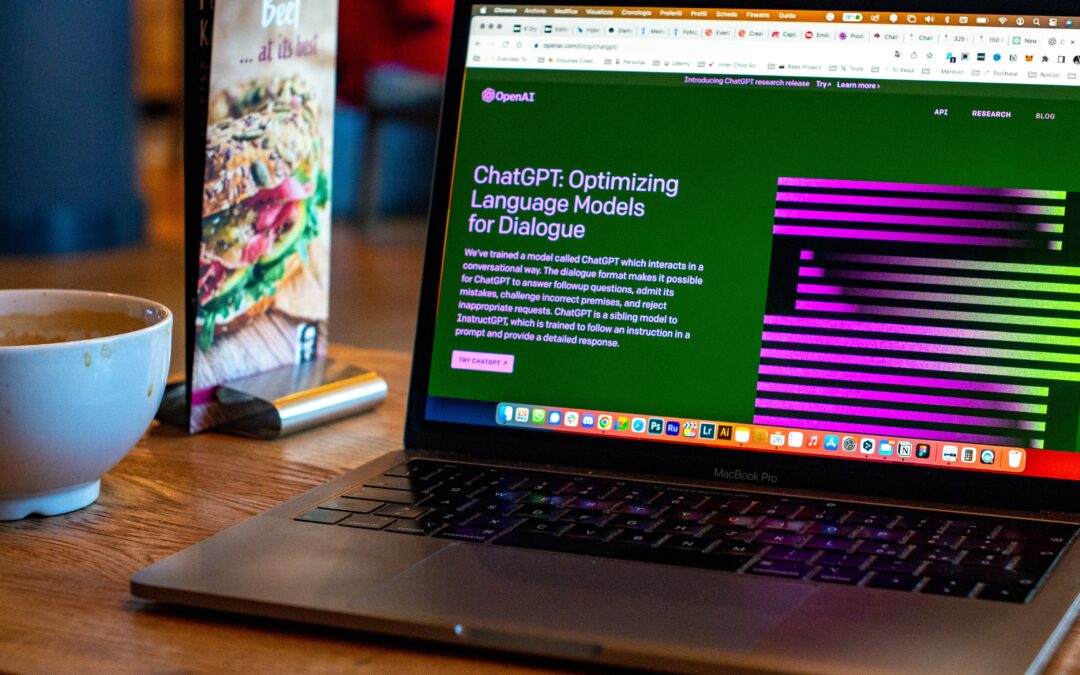Artificial Intelligence (AI) is revolutionizing industries across the globe, and marketing is no exception. With its ability to analyze vast amounts of data, make intelligent predictions, and automate tasks, AI is transforming the way businesses approach marketing strategies. In this article, we will explore the various ways AI is changing the marketing landscape and how businesses can leverage its potential to stay ahead in a competitive market.
Understanding Artificial Intelligence
Before diving into its impact on marketing, it’s essential to understand what AI is. Artificial Intelligence refers to the simulation of human intelligence in machines that are programmed to mimic cognitive functions such as learning, problem-solving, and decision-making. AI algorithms can process vast amounts of data and make predictions or take actions based on patterns and insights derived from the data.
Impact of Artificial Intelligence on Marketing
- Personalized Marketing
AI enables marketers to create highly personalized experiences for their customers. By analyzing customer data, AI algorithms can identify individual preferences, behaviors, and purchase patterns. This allows marketers to deliver tailored content, product recommendations, and offers that resonate with each customer, leading to increased engagement and conversions.
- Enhanced Customer Insights
With AI-powered analytics tools, marketers gain deeper insights into customer behavior and preferences. By analyzing data from various sources such as social media, website interactions, and purchase history, AI can uncover hidden patterns and trends that humans may miss. These insights help marketers understand their target audience better, refine their marketing strategies, and identify new opportunities.
- Automated Advertising
AI automates various advertising processes, making them more efficient and cost-effective. AI algorithms can optimize ad placements, target specific audience segments, and adjust campaigns in real-time based on performance data. This automation improves ad targeting, increases conversion rates, and reduces ad spend waste.
- Chatbots and Virtual Assistants
Chatbots and virtual assistants powered by AI technology provide instant customer support, answer queries, and assist in the purchase process. These AI-driven conversational agents offer personalized assistance, 24/7 availability, and quick response times. By automating customer interactions, businesses can provide better customer service while reducing operational costs.
- Predictive Analytics
AI algorithms can predict customer behavior, market trends, and sales patterns with a high degree of accuracy. By analyzing historical data and applying machine learning techniques, AI can forecast future outcomes, enabling marketers to make data-driven decisions. This predictive capability helps businesses optimize their marketing campaigns, inventory management, and resource allocation.
- Data-Driven Decision Making
AI empowers marketers with actionable insights derived from data analysis. By automating data collection, cleaning, and analysis processes, AI eliminates manual tasks and provides marketers with real-time information. This allows for more informed decision-making, faster response times, and the ability to adapt marketing strategies based on changing market dynamics.
Ethical Considerations
While AI offers tremendous potential for marketing, ethical considerations must be addressed. Privacy concerns, data security, and the responsible use of AI-generated content are critical areas that marketers need to navigate carefully. Maintaining transparency, obtaining consent, and adhering to ethical guidelines are essential to build trust with customers and avoid potential backlash.
AI in Content Creation
AI is also making its mark in content creation. Automated content generation tools can produce written articles, blog posts, and social media content based on predefined parameters. While AI-generated content can save time and resources, maintaining a human touch and ensuring quality remains a challenge. Striking the right balance between AI automation and human creativity is crucial for successful content marketing.
The Future of AI in Marketing
As AI technology continues to advance, the future of marketing looks promising. AI-powered voice assistants, augmented reality, and virtual reality experiences, and hyper-personalization will become more prevalent. Marketers will rely on AI-driven predictive analytics and machine learning algorithms to gain deeper customer insights and improve marketing strategies. Businesses that embrace AI and adapt to its capabilities will have a competitive edge in the evolving marketing landscape.
Artificial Intelligence is reshaping the marketing industry by providing marketers with powerful tools to understand and engage with their customers effectively. From personalized marketing and automated advertising to predictive analytics and content creation, AI is transforming the way businesses approach marketing strategies. However, ethical considerations and the human touch in content creation remain crucial. As AI technology advances, marketers must stay informed, adapt, and leverage its potential to drive business growth in the digital age.
FAQs
-
Will AI replace human marketers entirely? While AI is revolutionizing marketing, it is unlikely to replace human marketers entirely. AI complements human skills and helps marketers make informed decisions based on data and insights. Human creativity, empathy, and strategic thinking remain vital in devising effective marketing strategies.
-
How can AI improve customer targeting? AI analyzes vast amounts of customer data to identify patterns, preferences, and behaviors. This enables marketers to target specific customer segments with personalized content and offers, resulting in higher engagement and conversions.
-
What are the ethical concerns associated with AI in marketing? Ethical concerns include data privacy, security, and the responsible use of AI-generated content. Marketers must prioritize transparency, consent, and adherence to ethical guidelines to build trust with customers and avoid potential risks.
-
Can AI-powered chatbots replace human customer support agents? AI-powered chatbots provide instant customer support, but they cannot fully replace human agents. While chatbots handle routine queries and provide quick responses, human agents bring empathy, understanding, and complex problem-solving capabilities to customer interactions.
-
What skills do marketers need to thrive in an AI-driven world? Marketers need to embrace AI and develop skills in data analysis, AI tools, and machine learning concepts. Additionally, creativity, strategic thinking, and the ability to interpret AI-generated insights will be valuable for successful marketing in an AI-driven world.
Contact us to learn more about how we can help you, and schedule a free consultation today with our Zebra team!

